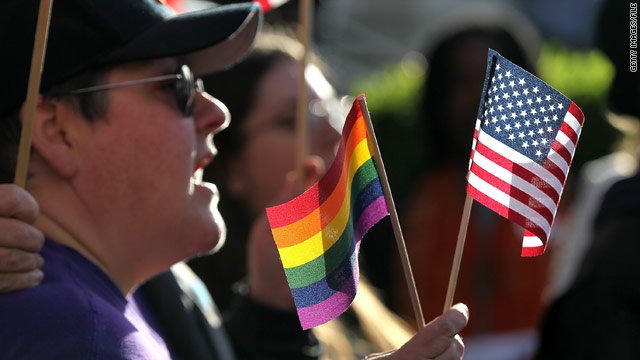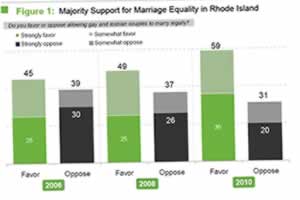When the UK first implemented civil partnerships, it was commonly reported as gay "marriage", and widely viewed as marriage in everything but name. With the passing of time and greater familiarity, the feeling has grown that "everything but name" doesn't cut it, that separate isn't equal, and that names matter. There has been increasing public pressure to upgrade to full marriage, and increasing support for the idea from leading politicians - without any firm commitments from the ones with the clout to implement it.
Today, a prediction (not a promise) from Liberal Democrat deputy leader Simon Hughes is the clearest indication that the change will indeed come. The difficulty is the time scale. Mr Hughes has not said anything more than that it will be "before the next general election" - that is within the next five years. That's all very well, but with the gay marriage train accelerating worldwide, five years from now, gay marriage will be routine across much of the world. I certainly agree that the UK will have full marriage equality by 2015 - but I hope it can be somewhat earlier than that.
This is from the
Telegraph:
'Gay couples will get equal right to marry'
The Coalition will give homosexual couples the same legal rights to marriage as heterosexuals, a senior Liberal Democrat has said.
Simon Hughes, the Lib Dem deputy leader, said that the Government will allow same-sex couples to have “civil marriage” with same legal status as marriage between a man and a woman.
His comments follow moves by a Lib Dem minister to allow homosexual couples to have religious elements to their civil partnership ceremonies.
Under current rules, same-sex couples can contract a civil partnership, which is recognised in law but not given the same status as marriage for a heterosexual couple.
Mr Hughes predicted that before the next general election, the law will be changed to give an equal right to full marriage.
“It would be appropriate in Britain in 2010 to have civil marriage for straight people and gay people equally,” he said.
“The state ought to give equality. We’re halfway there. I think we ought to be able to get there in this Parliament.”
Earlier this month, Lynne Featherstone, the equalities minister, said the Coalition was considering allowing same-sex couples to include key religious elements in civil partnership ceremonies.
The full equality that Mr Hughes advocated would go further than that, although he insisted any change would be limited to civil marriage and would not place any obligations on religious groups to marry same-sex couples.
Mr Hughes, regarded as being on the left of the Lib Dems, has been critical of some Coalition policies and has threatened to reject parts of the Government’s Budget package.
But, in comments in an internet-based interview, he backed the Coalition and said it was increasingly following a Lib Dem agenda.
“All the time, we are making Tories, at least Tories in government, more enlightened and that must be good for the country,” he said.
During the election campaign, the Conservatives were the only main party to suggest that they would consider allowing full homosexual marriage. Some lawyers say that would be easier to legislate for than altering existing laws on civil partnership and civil marriage.

















